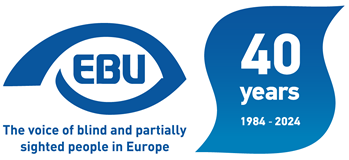We attended the European Day of Persons with Disabilities yearly event on 30/11-1/12. The topics of this edition were: removing the barriers to the electoral rights of persons with disabilities in the European Parliament elections; skills and employment of persons with disabilities; and the achievements, challenges and next steps of the EU Disability Rights Strategy.
On the first topic, the representative of Spain flagged the “Declaration of the Spanish Presidency of the European Council, on Expanding Voting Rights of Persons with Disabilities”, endorsed by 20 Member States, which underlines 6 specific commitments to the political participation of persons with disabilities. We intervened to welcome it and at the same time expose the inconsistency with the Council’s failure so far to respond to the European Parliament’s own-initiative legislative resolution for a reform of the EU electoral law—where the issue of accessibility of the elections is well addressed.
Regarding the achievements of the Disability Rights Strategy, there was a very interesting presentation by Eurostat of its contribution on improved data collection on disability. We welcomed the aim, with a clear timeline, to progressively include information: on disability in all domains of social statistics; on type of disability, based on functional limitations criteria and barriers to participation in specific life domains; on specific groups (children, persons living in households and institutions); and to improve the dissemination of datasets, including income and living conditions, social protection, access to labour market, access to education and training, access to health and care services, access to ICTs, and leisure and social participation. We learned the figure of 34% of the EU population having some seeing limitations, around 6% of which severe.
For further information on the EDPD event see the recap by Nacho Lopez.
We are still waiting for the European Commission’s public consultation for the mid-term review of the Creative Europe programme 2021-2027, due for the last quarter of 2023. At the time of writing this, it has not yet been opened. We look forward to it to make our comments about delivering on inclusion of persons with disabilities, namely in the MEDIA strand, as regards promoting audio description and audio subtitling with the European film industry.
As usual, we contributed to the yearly update of IFLA report on the implementation of the Marrakesh Treaty. The year 2023 ends with a clear picture of the challenge ahead for the correct application of the Treaty. European publishers are promoting the view that the European Accessibility Act is “a game changer in terms of the commercial availability of accessible books which should be reflected in any revision”, namely to re-consider that Member States should not be allowed to impose the prior verification of the commercial availability of works in accessible formats.” In fact, some national legislations already impose such obligation, and a key issue, further, is whether the commercial availability of a work in e-book format would stop authorised entities from producing other types of accessible formats, to respect the choice of preferred format for print-disabled readers.
The EBU recommendations for the accessibility of payment terminals are now finalised and published. Based on these, we will engage with the European payment industry at the start of the new year.
At its EPSCO meeting of 27-28 November, the EU Council adopted its ‘General Approach’ (negotiating position in co-decision with the European Parliament) on the proposed directive on the European Disability Card and European Parking Card for persons with disabilities. Its position is better than expected, and even allows some flexibility on extending scope beyond stays of 3 months-although that would be left for single Member States to decide. With this development, the adoption of the directive before the European elections of June 2024 now appears likely.
The European Economic and Social Committee also adopted its Opinion on the proposed directive, and it is very much on the same line as the European Disability Forum’s and therefore ours—except that we would not limit only to working or studying in another EU country the extension of the scope of the directive to organise the transition of competence between country of origin and new country of residence. Very welcome is ECOSOC’s general comment “that the European Disability Card and the European Parking Card will not solve all the problems of free movement for persons with disabilities. Essentially, the Disability Card will guarantee mutual recognition of disability for persons with disabilities in relation to all services, facilities and activities for short stays in other EU Member States. A significant barrier to free movement for persons with disabilities is not included: social protection underpinning a permanent move to another Member State. The Commission proposal is therefore a first step in the right direction, but does not fully achieve the goal of removing the barriers to freedom of movement for persons with disabilities.”

